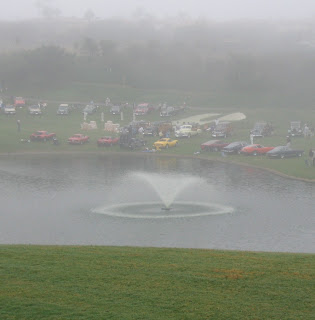Yes, I am. I was reading journals tonight, and the latest entry from a lady I very much admire caught my attention.
She's a newspaper reporter, a talented writer on her way to greater heights. She wrote eloquently about being in the office late and receiving a hot-off-the-press copy of tomorrow's paper. That put me in full reminiscence mode.
When I was in my early teens, I worked for a newspaper. As a delivery boy. It wasn't much of a paper, really; just a weekly community rag short on news and long on ads.
Each Wednesday, I'd walk or ride my bike down to the office to get a stack of papers for next-day delivery. Once I had them home, I'd fold each paper, encircle it with a green rubber band, and stuff it in my canvas delivery bag.
I didn't make a lot of money. Subscribers paid 25 cents per month, and no one had to pay. The paper went to every house on my route whether the resident subscribed or not.
PARENTHETICAL NIPPING-AN-EMBRYONIC-BUSINESS-TYCOON-IN-THE-BUD THOUGHT: Once, I decided to deliver only to subscribers in order to boost the number of paying customers. My grand plan failed; several non-subscribers called the paper to complain (none volunteered to pay), and I got a hell of a rocket from the office. I lost some of my enthusiasm after that....
I always arrived early on Wednesday night. I was fascinated by what might grandly be called the "pressroom." The press seemed huge, black and ancient. The strange motions it went through turning raw paper from the huge roll at one end into printed and folded finished copies at the other end held my eyes.
In the same room was a Linotype machine, which set the rows of lead type that, set in wooden frames, went into the press. For some reason its operator worked on Wednesday nights, so the silvery clatter of his machine provided a kind of counterpoint to the rhythmic noises of the press.
And then there were the smells, as heady in their own way as the smell of fresh-cut grass on a baseball diamond on a warm summer night. Hot lead from the Linotype, the distinct aroma of the newsprint and, all-pervasive, the tang of printer's ink.
I said it was a small paper. The "editorial office" was tiny; I think the staff numbered four or five, apart from the editor, pressman and Linotype operator.
One was the circulation manager. His job seemed primarily to ride herd on the delivery boys and take calls from irate customers -- or non-customers -- whose paper was wet, thrown on the roof or missing.
I remember the circulation manager. He was a youngish man who lived with his mother and drove a 1952 Pontiac. The car was immaculate, white with a silver top. It seemed cool to me, but was probably all he could afford.
One Wednesday night, I went to collect my papers and someone else was there to dole them out. The circulation manager had been killed earlier that day when a truck slammed into his nifty Pontiac. I remember that the radio was on, cranked up high to drown out the press, in the pressroom; the tune it was playing was, gruesomely enough, "Our Day Will Come." His day had come, all right.
Every time I hear that tune, I remember that night.
Not long after, I took a job at the local pharmacy. It paid better.
Oddly enough, though I already enjoyed writing, and had had plenty of exposure to a "real" newspaper, I never connected the dots.
I wish I had. Perhaps I'd now be the editor of some small-town newspaper somewhere, presiding over a staff of four or five and thinking myself a big, fish, indeed. I know I'd walk out into the back to watch the press every night we published....
I think about that sometimes. It's a tasty fantasy to a dinosaur like me in this speed-of-light world of internet news, instant communication and dying newspapers.
And I know as the editor I would offer Kari a job if her work came to my attention. If she accepted, I'm certain she wouldn't stay long. She's on her way to something far better than the metro paper for which she works. The thrill of writing stories about local events for a tank-town crowd (at coolie wages, to boot) would have little appeal for someone like her, I guess.
It does for me, however. Having seen the bright lights of the big city, I often yearn for something quieter and simpler. And slower.
Years after my delivery-boy days, my hometown paper had been swallowed up, and had become a "regional" section in a larger paper. Last time I was there, it had vanished altogether, and the old building was gone, too.
Its day had come. Has mine?
3 days ago


















